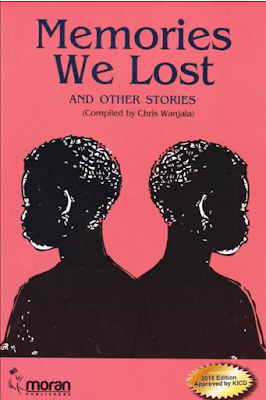Hitting Budapest
NoViolet
Bulwayo
Characters:
Basta – 11 years old
Chipo – 10 years old
Godknows- 9 years old
Sbho – 8 years old
Stina
Narrator – 9years old
Main
concern
· The devastating impact of poverty on children (juveniles)
Other issues;
· Poverty
· Immigration
· Social classes
· Exploitation
· Delinquency
Synopsis
Hitting
Budapest explores the hardships encountered by children living in a poor neighbourhood
ironically named Paradise. These are Basta, Chipo, Godknows, Sbho, Stina and
the (unnamed) narrator.
They
lack basic needs like food because of poverty. They are forced to steal guavas
to quell their hunger pangs. They used to steal guavas from Chipo's uncle’s
tree but now they steal from strangers who live in an affluent neighbourhood
called Budapest.
Getting
out of Paradise is easy since the adults are too preoccupied with plaiting hair
or playing draughts. As they ran, it turns out Chipo who was the fastest among
them is slower today. She is pregnant after being sexually exploited by her
grandfather. She has to sit down and rest.
Chipo
describes Budapest as “a country where people who are not like us live” There is
social stratification. The children are accustomed to the life in the shanty where
there is pollution from burning things and smell of cooking food and rotting
things.
Their
mission in Budapest is stealing guavas. At Budapest they meet a thin woman from
London known as Mello. To their surprise, she smiles at them. Nobody at
Budapest smiles at them. When Chipo asks about the food she is eating, the
woman mistakenly thinks she’s asking about the camera she was holding. They
have different worries; point of views. The children are surprised when woman
throws away food.
The
narrator has dreams of moving to America where her aunt Fostalina lives. She
expects to live a better life there. Africans feel life is better overseas
especially in Europe and America. Godknows’ uncle, Polite, lives in London.
As
they go back to paradise the ill-mannered children spit and litter the streets of
Budapest with guava peels. Chipo vomits. They admire the big houses in Budapest.
Sbho says she will live in houses like those one day. Basta dismisses this as a
pipedream and throws guavas at the house. Basta is violent. He has beaten all the
children except Stina. Sbho dreams of marrying a man from Budapest to escape
the shanties of Paradise, Heaven and Fambeki.
Basta
also dreams of going out of the country where he will make lots of money and
buy houses in Budapest, Paris or Los Angeles. He wants to go to South Africa or
Botswana.
Chipo
remembers what her teacher Mr. Gono told her-that you need education to make
money. Now she doesn’t attend school anymore but she thinks she does not need school
to make money- that’s what the Bible says in her understanding.
Basta
says nasty things about America and this hurts the narrator who dreams of
living there. She feels boiling rage and has fantasies about violently
accosting him.
Later,
they are rounded up and taken to the Juvenile correctional centre. The narrator
can now read and write. She is now reformed. She will write to Mello to
apologise for their misdemeanour to the people of Budapest. She still hopes to
go to America after her studies. Chipo who has since delivered, would like to
continue with her studies and become a counsellor to guide and help children
from Paradise.
Apart
from basic needs like food, shelter and clothes, children also need love,
compassion and guidance. They also need education and protection from predators.
Without these, they engage in serious detrimental behaviour.
NEXT: Missing Out by Leila Aboulela
See analyses of all stories in Memories we Lost here.

Can we get a question from hitting Budapest, almost home and the president since it has already been set the previous years?
ReplyDeleteRead them for your own pleasure if you must, but we expect questions from the remaining 11 stories.
DeleteProvide an essay example please
ReplyDelete